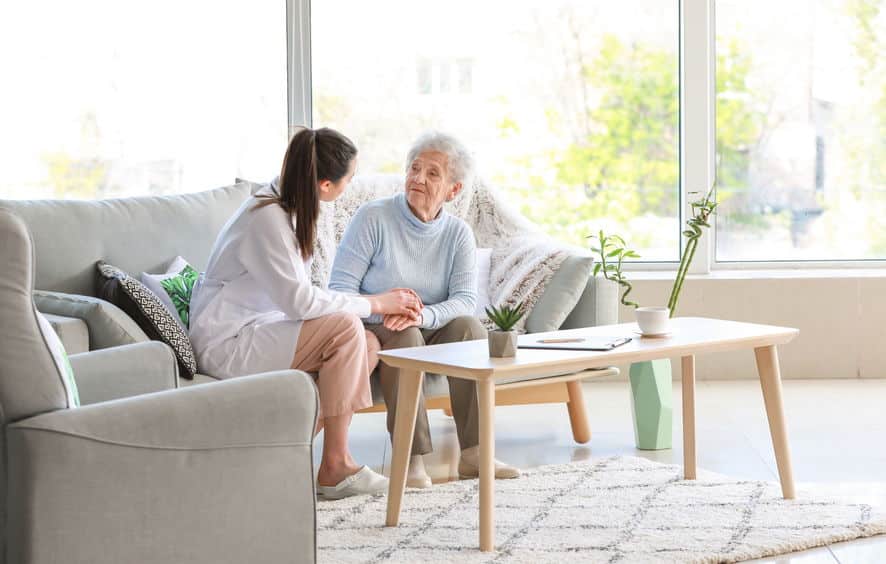Senior Care of the Future: What it Could Look Like

People today are living longer than ever before. Thanks to advances in healthcare, ever-expanding knowledge in nutritional needs, and continuous improvements in medical technology, our lifespans have increased. It’s even been predicted that by the year 2050 one in six people will be older than 65 years old!
While we can certainly celebrate the fact that many of us will enjoy long, fulfilling lives, our increased life expectancy raises questions around senior care. What is the best way to care for a growing population of older adults?
Researchers are studying attitudes towards telehealth technologies that improve the quality of care older adults receive, and the senior living industry itself to determine what the future of senior care might look like. Here are some of their findings and predictions:
Attitudes about assisted living are becoming more positive. Many of us have had difficult conversations with our aging family members about senior care, and many of us have received expected resistance. But there’s evidence that seniors are starting to feel more positive about community-based care facilities because they’re able to retain their independence, their freedom, and feel more supported. They much prefer a community-based approach over a rigid, highly-structured approach. As more care communities pivot towards a community-based model, older adults will be more willing to enter assisted living.
Technology will play an essential role in senior care. At United Methodist Communities, we use technology to deliver the best care to our residents. Two-way video telehealth calls with primary caregivers, monitoring vitals with a secure app, and AI-powered (artificial intelligence)fall prevention are just a few technologies we use to administer the most efficient and convenient care. Seniors can also use digital tools to set medication reminders, have questions answered by specialists, and share data like daily blood pressure readings with their physician instantly.
Acknowledge that there is no “one-size-fits-all” when it comes to senior care. Much of the resistance that older adults have toward assisted living has to do with their individuality. They want to live somewhere that accommodates their unique routines. Older adults still enjoy their freedom, and they’re averse to strict schedules with no flexibility. With that said, assisted living communities are now acknowledging that a blanket approach is not ideal. Instead they’re creating environments where residents can thrive, live life on their own terms, and retain all of the qualities that make them unique.
Senior Living at UMC Collingswood
Assisted living facilities must prepare for an increasing older adult population and make the necessary adaptations. When looking at senior living communities for you or for a loved one, here are some helpful questions to ask:
- Do you have a resident-directed approach to assisted living? Can you tell me about it?
- How do you support the individual needs of each resident?
- How are you using telehealth to improve the quality of healthcare?
- What other technologies do you use that enhance quality of life?
- Can you tell me about your onsite security and safety?
Assisted living facilities like our community at Collingswood should have satisfactory answers for each question. They should also share examples of everything they’re doing to support current residents, while transitioning into senior care of the future.
For more information about senior care at UMC Collingswood, or any of our other communities across New Jersey, please contact United Methodist Communities today to book your visit. We look forward to hearing from you.





